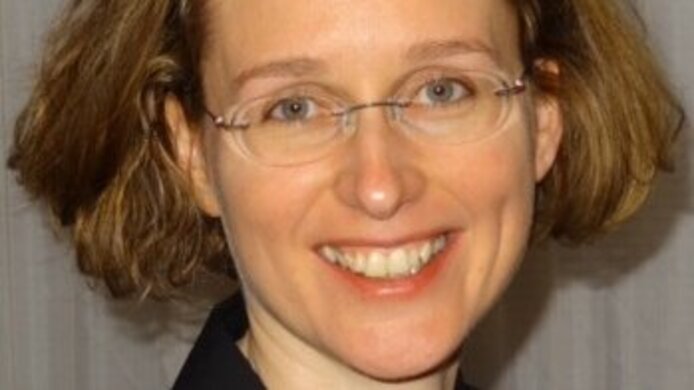Postdoc - and now what?

Especially at the beginning of their careers, it is important for young scholars to tap funding opportunities so as to crystallise ideas for projects and engage in the competition for research funds. By harnessing third-party funds for a project, young academics can develop a strong research profile and thus lay the foundation for a successful career in science. Whilst the postdoc period affords a sizeable degree of freedom and many opportunities, it is also a particularly precarious phase. Newcomers to the science community can be burdened by a sense of insecurity, particularly if the postdoc period proves to be protracted and unpredictable as to its outcome, involving a series of short-term contracts and low hopes for permanent employment. – This means that highly motivated researchers have to scrape a living by moving from project to project over many years without seeing a longer-term career perspective emerge. It is at this point that research funding organisations such as the Austrian Science Fund FWF need to fulfil their mission of giving targeted support to the most promising young researchers. While funders cannot offer permanent positions, they can help postdocs to acquire the skill set required for a successful professional life. What are the most important aspects in this context and how can one ensure that measures taken are effective?
Improving support options
Networking is a key term in this context, not only when it comes to the careers of individual researchers, but also for successful work on the part of funding organisations. The FWF is a member of Science Europe and participates in various initiatives of this association of European research and funding institutions. In concrete terms, a Working Group on Research Careers recently mapped out support opportunities available to postdocs from the member organisations of Science Europe and identified ways to improve the offer (http://scieur.org/postdoc-survey). The following issues turned out to be key leverage points for research institutions and funders:
- Improving working conditions
- Mentoring and networking
- Flexibility
- Reimbursement of training costs
- Taking gender issues into account
- Influence of researchers on programme designs
- Evaluating the impact of funding schemes
- Meeting prerequisites for tenured positions
At the FWF, we are continuously developing measures to assist young scholars in their careers. Numerous aspects of tangible impact for grant recipients were implemented in recent years, such as adding child benefits and pension contributions to the Schrödinger Fellowships abroad, as well as options for return-phase funding within the context of this mobility programme. Flexible approaches accommodating differing needs will
help create the best possible preconditions for successful research. If the situation clearly warrants it, there is the option, for instance, of applying for a switch-over to another research institution. The career programmes also include the option of suspending projects to go on parental leave and continuing on a part-time basis upon return.
Women’s support, networks and evaluation
Another central aspect has turned out to be addressing women and their visibility in science. Our Hertha Firnberg and Elise Richter Programmes encourage women to submit projects. Award ceremonies heighten public awareness and offer a good opportunity for networking between younger and established women scholars. Networking activities are also enhanced by the coaching workshops and information events the FWF organises on a regular basis. At these events, project applicants not only get answers to their questions, but are also encouraged to make suggestions for improving funding programmes.
Evaluation exercises that analyse the impact of our funding measures are the foundation for building the FWF’s funding programmes. One example of a successful addition to a funding programme based on the result of an evaluation is return-phase funding after an Erwin Schrödinger Fellowship abroad. For many young researchers who do not have a tenured position, this offers valuable assistance for their re-integration into the Austrian research community upon their return. The measure also helps to make the know-how that Schrödinger fellows acquire abroad available to Austrian research institutions.
Lise Meitner revisited
Aspects of career development also played a vital part in the modifications made to the Lise Meitner mobility programme whose new guidelines have been in effect since 1 February 2017. As of now, the Lise Meitner Programme will address both foreign scholars (brain gain and incoming being key notions) as well as researchers who left Austria and want to come back to an Austrian research institution after a stay abroad of at least four years (the reintegration focus). Starting as of 1 February 2017, the modified Lise Meitner Programme now offers funding for coaching and personnel development measures, which is also the case in the women’s support programmes and in the return-phase part of the Erwin Schrödinger Fellowship. As in the Hertha Firnberg Programme, the co-applicant serves as a mentor. In addition to supporting research activities, the objectives include career development of the principal investigators.
Feedback from the community
Apart from evaluation results and international comparative studies, another important source of insights for optimising FWF research funding is feedback from the science community, which is represented in all bodies of the FWF (cf: http://www.fwf.ac.at/en/about-the-fwf/organisation/). Moreover, many people working at FWF office have spent part of their career in science. As a former basic researcher I can confirm that my own recollections of exciting projects and cooperative endeavours, but also of administrative hurdles, are very helpful in understanding the concerns of our funding recipients, thus making it easier to assist them with advice. Future challenges, such as providing the preconditions for creating employment for highly qualified scholars beyond the duration of the grant period, can only be met on the basis of intense co-operation between research funders and research institutions. As a funder, the FWF can also contribute to postdocs receiving as much support as possible in choosing their individual career paths. In order for this to happen, we enable research and create opportunities for collaboration and international exchanges of experience. In addition, we foster networking among scientists and mentoring and also make funds available for coaching and personnel development in our career development programmes. When scientists make use of these opportunities to build a strong research profile, ensure international visibility for their publications and establish successful cooperation, it will give them a decisive edge when it comes to recruitment and appointment to tenured positions. In view of the strained situation in the science and research job market, it is all the more important for postdocs to grasp these opportunities – in order to avoid uncertainty and realise their career goals.
Barbara Aichmayer is a Programme Manager and Scientific Project Officer in the FWF’s Strategy – Career Development Department. Prior to her post at the FWF she conducted basic research on biological materials such as shells and bones at the Max Planck Institute in Potsdam.
Links






